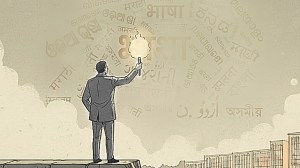After Mumbai attacks,Israel ready to share anti-terror strategies
Israel hopes that the recent terror attacks in Mumbai will infuse a new sense of urgency into counter-terrorism co-operation with India...
Israel hopes that the recent terror attacks in Mumbai will infuse a new sense of urgency into counter-terrorism co-operation with India and allow the transfer of strategies and tactics and not just arms and equipment to help Indian security agencies prevent or respond faster to such crises in future.
Although New Delhi and Jerusalem set up Joint Working Group on Counter-Terrorism in 2001,the panel has remained more of an annual meeting forum while co-operation on the ground focused on India sourcing unmanned aerial vehicles,ground sensors to curb infiltration on the LoC in Kashmir.
These steps and the fence erected along the LoC,which also used Israeli gadgets,had gone a long way in reducing militant infiltration. But the commando-style attacks across Mumbai by highly trained terrorists have exposed the holes in Indias preparedness to deal with the changing tactics of the attackers,Israeli Government sources and security experts say.
While New Delhi has kept its security and defence relations with Israel low-profile due to domestic political sensitivities,Jerusalem has been jolted by the fact that Israeli nationals and a Jewish centre were targeted in Mumbai. Our help was always on offer,but now it is expected to be taken more seriously and become an important area of co-operation, says one Israeli Government source.
Initially,there was some criticism in Israel by some independent experts and former military officers to the way in which Indian forces responded and resolved the three-day siege in Mumbai,particularly the one at Nariman House where six Jews were killed. But keen to avoid a diplomatic row in the middle of a terror crisis,Jerusalem apparently silenced the critics saying it was easy to criticise from a distance without knowing the realities on the ground.
Israeli security experts,who have collaborated with their Indian counterparts,say one of the key lessons of 26/11 is the need for a change in the basic mindset of Indian security forces,be it the Army,special forces such as the NSG or Marine Commandos and indeed,the local police. Modern terrorism has become very complicated, says Dr Gidi Netzer,an Israel-based international expert on counter-terrorism and conflict-crisis management. These days there are hybrid threats where terrorists operate more like a modern army and less like a guerrilla group and we have to understand their motives and define terrorism anew.
A counter-terror consultant for governments and security agencies across the world,Netzer says Israel could be of help in three key areas: tightening border controls to prevent terrorists from entering,including from the sea route,putting in place a co-ordinated crisis response system,upgrading the tactical abilities of security forces and training them to use technology.
India has a lot of soft targets and they will continue to remain soft targets, says Netzer. India has to be very sensitive to these threats,stop,stand back,assess and rebuild its capabilities. Whether it is Srinagar,Leh,Kargil,Delhi or Mumbai,the basic principles of countering terror will be the same. We have some capabilities in these areas and we are more than willing to help.
- 01
- 02
- 03
- 04
- 05































